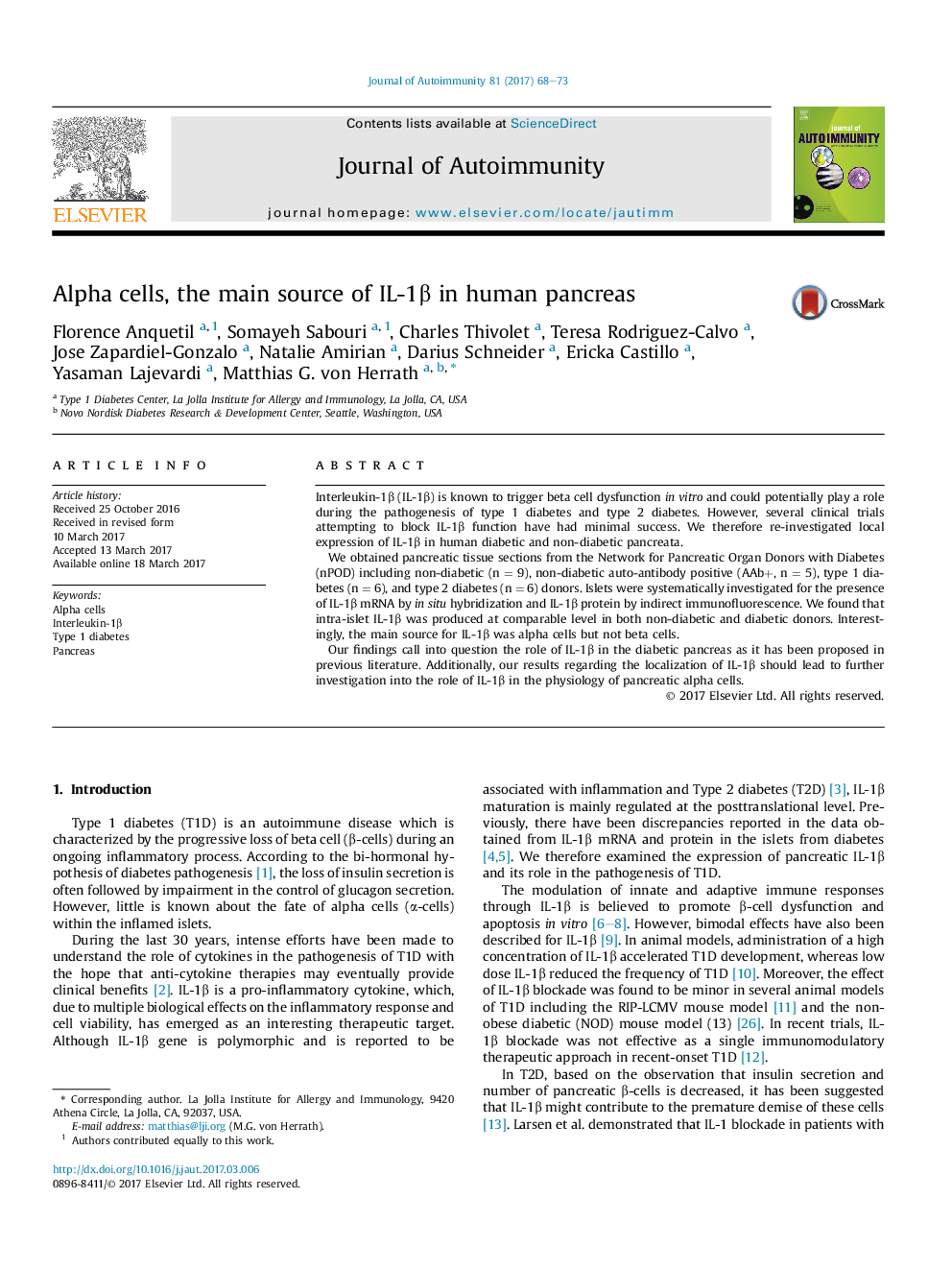| Article ID | Journal | Published Year | Pages | File Type |
|---|---|---|---|---|
| 5667816 | Journal of Autoimmunity | 2017 | 6 Pages |
â¢Alpha cells, but not beta cells, are the main source for IL-1β in human pancreatic islets.â¢Non-diabetic and diabetic donors produce intra-islet IL-1β at comparable levels independently from BMI or disease status.â¢The presence of IL-1β in islets may be associated with glucose homeostasis rather than inflammation.
Interleukin-1β (IL-1β) is known to trigger beta cell dysfunction in vitro and could potentially play a role during the pathogenesis of type 1 diabetes and type 2 diabetes. However, several clinical trials attempting to block IL-1β function have had minimal success. We therefore re-investigated local expression of IL-1β in human diabetic and non-diabetic pancreata.We obtained pancreatic tissue sections from the Network for Pancreatic Organ Donors with Diabetes (nPOD) including non-diabetic (n = 9), non-diabetic auto-antibody positive (AAb+, n = 5), type 1 diabetes (n = 6), and type 2 diabetes (n = 6) donors. Islets were systematically investigated for the presence of IL-1β mRNA by in situ hybridization and IL-1β protein by indirect immunofluorescence. We found that intra-islet IL-1β was produced at comparable level in both non-diabetic and diabetic donors. Interestingly, the main source for IL-1β was alpha cells but not beta cells.Our findings call into question the role of IL-1β in the diabetic pancreas as it has been proposed in previous literature. Additionally, our results regarding the localization of IL-1β should lead to further investigation into the role of IL-1β in the physiology of pancreatic alpha cells.
